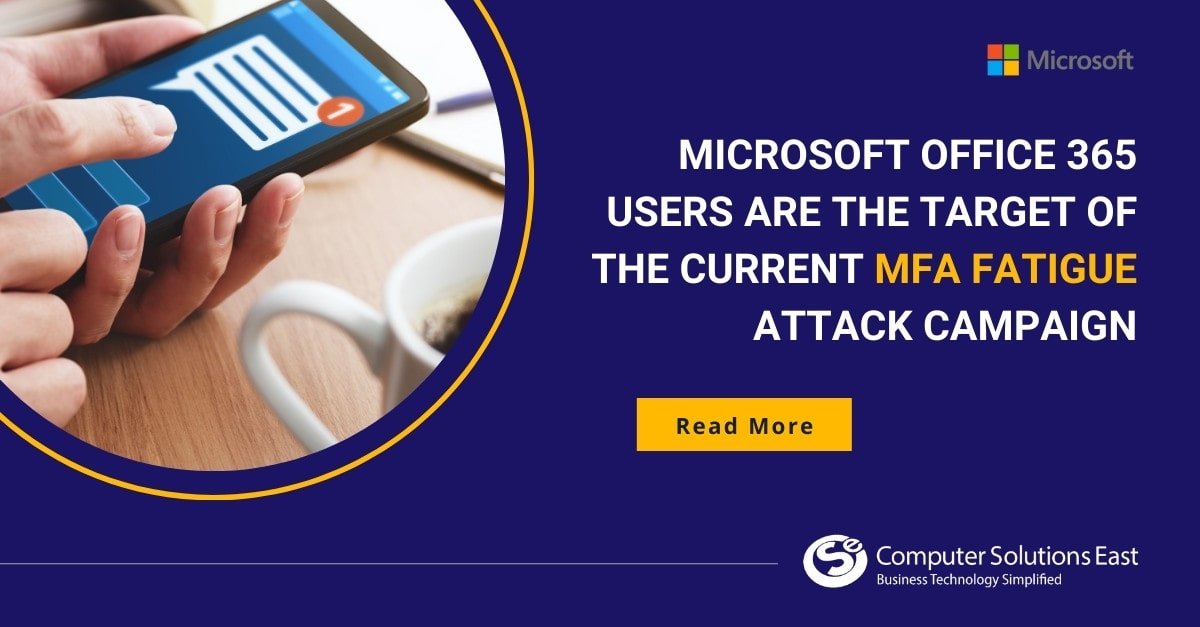Prevent 6 Security Threats with Cybersecurity Solutions
The past year closed with $6 trillion worth of cybercrime damages worldwide. This is due to the unprecedented increase of cyber threats that have victimized businesses and even the general public. And what’s alarming is that it only gets worse in 2025, as the financial costs are expected to shoot up to $10.5 trillion—that which could equate to even higher cyber incidents and victims.

On the brighter side, more and more companies have been investing in cybersecurity solutions to protect themselves from threats. This also includes the costs for data security accreditations, hiring cybersecurity professionals, and even the procurement of licensed software and tools across an organization. In fact, the global spending for such solutions is foreseen to be around $1.75 trillion.
As we see the financial damages of these threats rise, we’re also seeing how industries have become receptive to the importance of cybersecurity. But here’s the thing, should we spend on solutions without knowing deeper what we’re trying to solve? So here are the six main security threats that we’re up against:
Phishing
This is probably one of the most familiar forms of a cyber threat. In case you didn’t know yet, phishing is an online scam that uses emails to spread suspicious links. These would typically hook a victim by promising too-good-to-be-true offers just to persuade them to click a link or an email attachment.
Once clicked, the malware will then be unknowingly installed on a device, creating an open door for cybercriminals to access and manipulate data. This strategy has victimized millions, taking up 43% of data breaches in 2020.
Ransomware
Ransomware is another popular way of infiltrating devices and networks. This is usually spread via phishing emails or suspicious links that would inject malware on a device once clicked. Devices with outdated operating systems or unsecured networks are its prime victims.
This security threat is basically holding someone’s device hostage in exchange for ransom. Without paying the requested amount, the device is blocked, including all the data it stores. This would brutally paralyze any process, regardless of how big or small a company is. One could lose a lot of business opportunities and revenues because of how it shuts off operations, especially those already in the digital space.
One notable ransomware was the WannaCry incident in 2017, which crippled massive businesses and government arms such as FedEx, Nissan, and UK’s National Health Service (NHS).
Cloud Malware Attacks
Since the inception of digital transformation, cloud technology has been a staple for storage, app hosting, and many others. However, keep in mind that not all cloud platforms have built-in data encryption and secure access authentication. Adding further vulnerability is the mismanagement of cloud platforms and poor cloud hygiene. This would allow cybercriminals to intrude a network or install malware to gather or leak data.
Cloud malware attacks usually target a company’s Virtual Machines (VMs), the central storage and processing platform for all their apps, data, and other functionalities hosted in the cloud. One common form of these is DDoS attacks that can infiltrate a whole network of a public cloud.
Once cybercriminals break in, they can freely do lateral movements and use valuable data for their profit.
Malvertising
It is one of the newest security threats that use digital advertisements embedded with malicious codes to redirect users to suspicious sites or install malware. The alarming thing is it has saturated legitimate advertising webpages, apps, and networks which confuses many.
These malicious ads show up because they pass through the adware’s screening capabilities, a built-in program installed in our computers, apps, or software that moderates the ads to show the user when browsing or using apps online. So extra caution is needed to distinguish which ads to click, or better yet, don’t click any ads at all.
Insider Threats
Insider threats are the simplest yet most neglected type of security threat. You can technically equate this to human error. This usually happens when an employee misuses internal access or credentials that have exposed the whole company’s confidential data.
Also, one part to share the blame for this is the non-compliance of the entire cybersecurity landscape of a company. The unclear policies and procedures and the lack of technology to automatically prevent this from happening are some of the factors that lead to this.
Once those credentials are out there without proper technical action from the company, their data can either be deleted, sold, or stolen, greatly affecting the whole operations.
Supply Chain Attacks
This threat would ruin not just the operations but also the established partnerships with an outside contractor. It is basically attacking the weakest link in your supply chain via the backdoors opened for a third-party partner. Once this happens, expect severe downtimes, delays, and even stopping the whole production. While this sounds like an exclusive threat to the manufacturing sector, it could happen to almost anyone. Regardless of the company type, size, or industry, no one should be confident against these supply chain attacks.
One recent case of this is the cyber incident with SolarWinds last 2020. Hackers penetrated the company’s production environment and created a backdoor to its network monitoring solution, exposing the data of its 30,000 clients, including the US government. This has become one of the biggest cybercrimes in the 21st century.
How can you prevent these threats?
As they always say, prevention is better than cure, and cybersecurity solutions are the only way you can gear up against these threats. These are not your conventional deployable app or software but are built with the following inclusions:
- The technologies needed to improve your security landscape
- The development of a holistic cybersecurity methodology for the years to come
- The knowledgebase and the technology updates
- The talent or workforce to execute everything
All of these can only be given by a trusted tech partner. If you are looking for one, we are the best pick. Talk to us.


